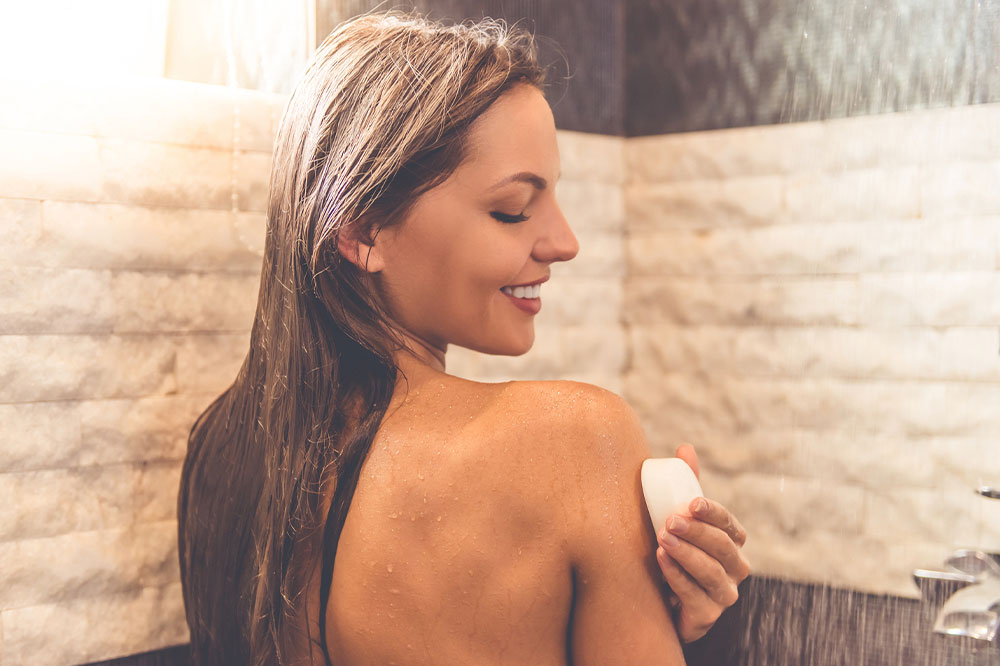7 bathing and showering mistakes to avoid

Bathing and showering are essential parts of our daily hygiene routine, but sometimes we make mistakes that can affect our skin and overall health. While these are some of the most basic and simple activities of the day, some tips can enhance this self-care experience further. This article discusses 7 common bathing mistakes people make. Avoiding these common mistakes will help you make your skincare routine more efficient in maintaining good health and hygiene.
Taking hot water showers
This can be especially comfortable when there’s a nip in the air or even after a long exhausting day of work. But hot showers are notoriously famous for rinsing the natural oils off the skin. This can leave the skin to be dry and flaky. If you suffer from skin conditions like eczema or psoriasis, hot showers should not be considered at all. It can cause flare-ups due to dry skin and dehydration. Also, always keep the baths short, just 10 mins. In fact, a lot of people might enjoy a hot shower after a workout, but studies suggest that a cold shower after a workout can help relax the muscles even more. And this can also help keep the pores of the skin closed. Some even take ice baths right after their workout, and while this may seem extreme, these baths can help relax the muscles tremendously after a hectic workout.
Not showering after exercise
Do you usually wait too long in your sweaty clothes to take a shower after the gym? You may feel lazy, but your skin can feel irritated with the sweat and dirt clogged in the pores. A lot of people also complain of acne due to sweating, and one way to avoid skin issues is to immediately take a proper bath after the workout to clean all the bacteria and dirt from the skin.
Wrong soap
This goes not just for soaps but for shampoos, conditioners, and any other bathroom products you may use. It is very important to be mindful of your skin type and needs and choose the most appropriate product. If you are allergic to scented products, then make sure you buy mild soaps with no scents. If you have a skin condition, always get a dermatologist-recommended product that will not irritate your skin and scalp further. There are several DIY remedies that can help keep your skin clean using natural ingredients. They are easily available on the internet.
Moreover, even using the same soap in excessive quantities can cause skin irritation and rashes. It can also cause hair color to fade prematurely among individuals who may have dyed their hair. Thus, using the wrong soap or using any soap excessively should be avoided.
Dirty towel
Towels can harbor many bacteria, fungi, and several other germs which are invisible to the naked eye. Using a dirty towel to wash after a shower is almost like not taking a shower altogether. It is always recommended to wash your towel often and have enough clean towels in the home. It is also recommended that you do not frequently share towels with others, especially those whose personal hygiene habits you are unaware of. This can cause skin infections or other issues.
Unclean shower head
The showerhead can contain many bacteria and other germs that can irritate the skin. It may seem like self-cleaning equipment; however, a regular scrub to the showerhead is necessary to ensure it is not harboring infections. Also, many areas may sometimes get unclean water which can clog the pores of the shower head, making the bathing experience a hassle. Therefore, regularly fixing up this piece of equipment will ensure a quick, stress-free shower.
Over exfoliation
Another common mistake people make while taking showers is over-exfoliation. Exfoliation is an important step of skincare and personal care, but over-exfoliation can strip away the natural oils of your skin. This can also be responsible for causing inflammation and skin irritation leading to red, patchy skin. Dermatologists suggest doing exfoliation once or twice a week. However, always use gentle products which are not too harsh on the skin. Instead of using physical exfoliation, some even suggest using chemical exfoliation every couple of months, depending on the skin type and lifestyle. Speak to your dermatologist to get a proper diagnosis of the skin and the necessary treatment for the same.
Not moisturizing
Moisturizing right after a shower is highly recommended. In fact, many dermatologists recommend using your skincare products on damp skin for better absorption. Being aware of your skin type will help you choose the right moisturizers to keep the skin hydrated and plump throughout the day.
Proper bathing practices are essential for healthy skin. If one experiences itchy skin or scratching despite proper hygiene, it could be the result of an underlying skin condition, like prurigo nodularis. This condition is characterized by raised nodules on the skin’s surface, inflammation, and discomfort. Those who face persistent skin issues should consult a healthcare professional immediately.
Sometimes, upgrading to the right accessories can also make a huge difference. For instance, getting the right kind of bathroom fixtures, like sink faucets, can make tasks like shaving, grooming, washing your face, and cleaning the sink easier. You should compare different types of bath sink faucets, as each is designed to serve a specific purpose. Popular options include center-set, single-hole, vessel, wall-mounted, and widespread sink faucets.



